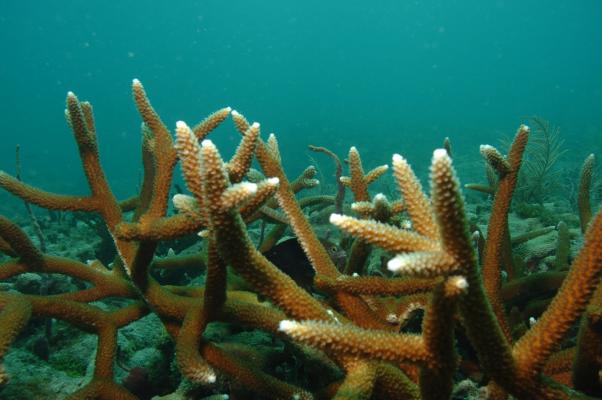| Videos | ? Latest |
|
? Feature | ? Sports | ? Your Videos |
Reacting to Climate Change: Reef Protector

The water is calm; there is just a slight wind blowing. A group of fishermen set off to the coral reef area in a fishing ground in Palawan Province in the Philippines.
Their sunburned skin and callous hands show years of experience at sea.
The number of fish catch in this Bay has declined over the years due to overfishing and shrinking spawning areas such as mangroves and coral reefs.
Climate change is hitting coral reefs hard, turning a once vibrant diving and fishing locations into bleached shadows of their former glory.
This is putting in jeopardy millions of peoples livelihoods.
Angelique Songco, a dive master and director of the Tubbataha Reefs Natural Park, the largest marine park in the Philippines, tells me Palawan is intensely feeling the effects of global warming.
"In the last 3 years we have observed the infestation of the crown of thorns in the area. I've been a diver for many years, I've been a park manager for 9 years and I’ve never seen a crown of thorns infestation for such a duration. We would have them for 5 months, for 6 months and then they'll be instantly gone. But this one is a continuous infestation and there are no scientific data that this is caused by climate change but I am suspecting that since it hasn’t happened before that perhaps it has something to do with climate change."
Angelique adds they also experienced widespread incidents of coral bleaching in 1998, which damaged 21 per cent of the coral reefs. Tubbataha reefs were luckier because many areas in the Indian Ocean and the Pacific Ocean suffered one hundred percent coral damage.
"In 1998, we did have coral bleaching...not so great... we measured as 21 per cent... we continue see this…We make sure that the pressure is eliminated because reefs that suffer from pressure are less able to recover from the effects of climate change."
Experts say coral bleaching is taking place because of the warming waters.
Heightened temperatures and changes in the El Nino and La Nina episodes are the manifestation of climate change. If the interval between these episodes get shorter, coral bleaching could be more frequent and more widespread.
As fishing is a weather dependent activity, this will have a dramatic impact on the fishing industry world wide.
Weather affects navigation, ability to travel, movement of species, the breeding and spawning patterns, and productivity of fisheries areas, mangroves, and water temperature.
And small Islands like Palawan will be the most affected.
Angelique says Palawan's economy is so ecologically dependent and she is deeply concerned about the future of poor fishing communities.
"Basically what we have to do is to ensure that the reefs remain as healthy a condition as we can. We want it to be free from human activities that provide more pressure so that they’ll be more able and more resilient in battling the effects of climate change."
 0
0 







